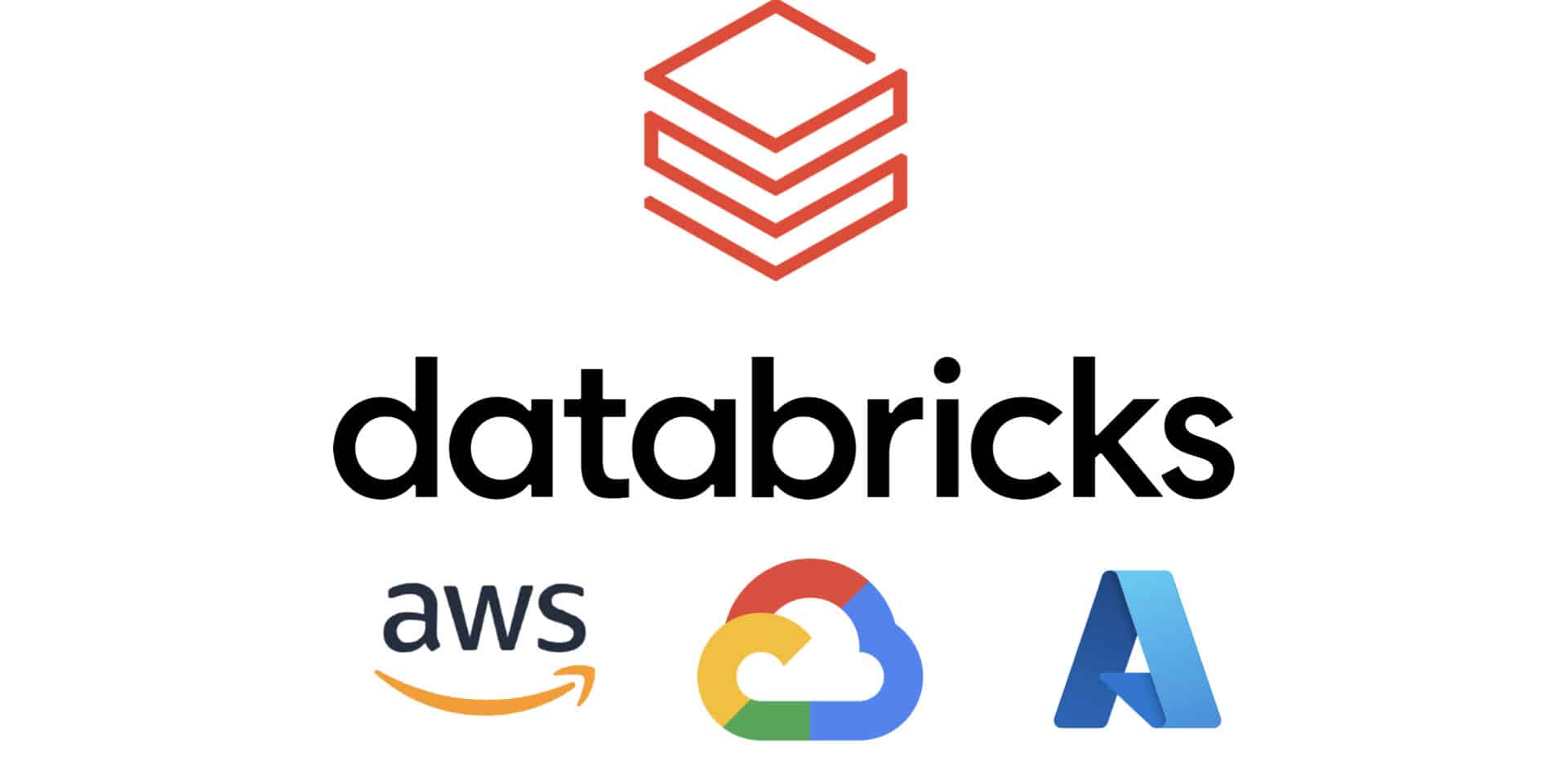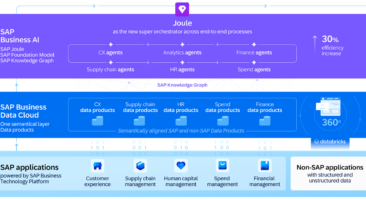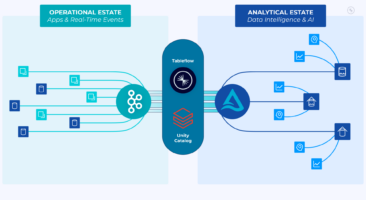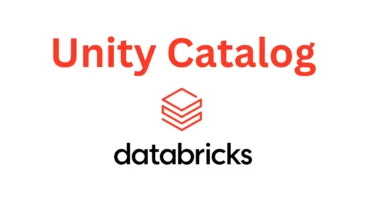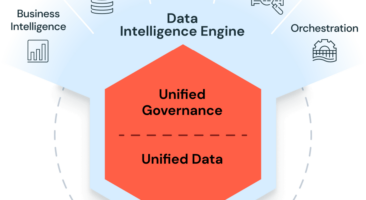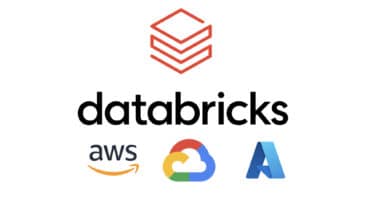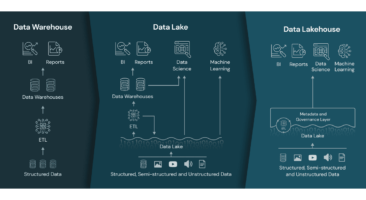Why Databricks Data Intelligence Platform Is the Ultimate Choice for Modern Data Challenges
For many companies, managing this growing mountain of data has become an enormous challenge. Organizations are striving to harness this data for better decision-making, deeper customer insights, and improved operational efficiency. Traditional data systems simply can’t keep up with the volume, complexity, and demand for real-time analysis. The growing importance of scalable, unified data platforms has become clear. Standing out among modern solutions is Databricks Data Intelligence Platform—a platform that many companies are turning to as they look to elevate their data capabilities.
The Modern Data Challenge
The volume and complexity of data sources have exploded over recent years. Businesses are collecting information from numerous touchpoints: customer interactions, online transactions, connected devices, and more. These data sources include both structured data (such as sales records and customer profiles) and unstructured data (such as social media posts, emails, and sensor data). Unstructured data, which often makes up the majority of an organization’s data, is more challenging to process and govern due to its variability and lack of predefined format. In addition, data governance has become a significant challenge, as businesses struggle to control data quality, ensure compliance, and maintain security with data coming from various sources and in different formats. Meanwhile, the demand for real-time analytics and machine learning capabilities is increasing. Traditional data warehouses and business intelligence (BI) tools often struggle to keep up with the scalability, speed, and diversity of data that businesses need to remain competitive.
What is Databricks Data Intelligence Platform?
Databricks Data Intelligence Platform is a unified data platform designed to bring together all your data—whether for analytics, engineering, or machine learning—into one seamless environment. Built on Apache Spark, Databricks Data Intelligence Platform provides a Lakehouse architecture that combines the reliability of data warehouses with the flexibility of data lakes, offering Delta Lake for optimized data storage and management. Databricks Data Intelligence Platform pioneered the Lakehouse architecture in 2020, and today it is adopted by 74% of global CIOs. Databricks Data Intelligence Platform is also the creator of Delta Lake, MLflow, and Apache Spark—all of which are open source technologies that power many data management implementations as well as the Databricks Data Intelligence Platform platform itself. These components make it easy to track experiments, manage data, and deploy models, providing a comprehensive solution for end-to-end data processing and AI.
Key Reasons Companies Choose Databricks Data Intelligence Platform
Unified Data Platform
Databricks Data Intelligence Platform combines data warehousing, data engineering, and data science in a single environment. It provides a unified workspace where data professionals from different backgrounds can work together seamlessly. By supporting multiple languages such as SQL, Python, R, and Scala, the platform makes it accessible for different teams to use their preferred tools without having to switch between environments. This comprehensive approach breaks down data silos, enhances collaboration, and fosters a more integrated data strategy for the entire organization. By providing a unified solution, the Databricks Data Intelligence Platform enables businesses to streamline workflows and improve efficiency, ultimately reducing time to insight.
Another core component of the unified data approach is Unity Catalog, a unified governance solution for data and AI assets. Unity Catalog simplifies data security and auditing across the entire data environment, ensuring consistent access controls and making it easier to manage data compliance requirements. It also provides centralized metadata, which enhances productivity by making it easier for teams to discover and utilize data across the organization.
Scalability and Performance
Databricks Data Intelligence Platform is designed to easily scale with growing data needs, offering the flexibility to handle anything from small datasets to massive data lakes. Its auto-scaling capabilities ensure that computational resources are dynamically allocated based on workload demands, which helps companies save costs by only using resources when necessary. Built on Apache Spark’s distributed processing power, Databricks Data Intelligence Platform can handle complex data transformations, data engineering tasks, and analytics at scale without sacrificing performance. This combination of scalability and optimized performance makes it an ideal choice for enterprises dealing with exponential data growth and those requiring real-time insights for business-critical decisions.
Real-Time Analytics and Streaming
Modern businesses need real-time analytics to remain competitive in a rapidly changing environment. Databricks Data Intelligence Platform supports seamless integration with streaming platforms like Apache Kafka, Amazon Kinesis, and Azure Event Hubs, allowing for real-time ingestion and processing of data. This capability is crucial for industries such as finance, retail, and healthcare, where real-time decision-making can significantly impact business outcomes. With Databricks Data Intelligence Platform, companies can derive immediate insights from streaming data, enabling proactive responses to customer needs, fraud detection, and operational efficiency improvements. The ability to integrate streaming data with machine learning models further enhances a company’s capability to create automated, intelligent systems that react instantly to changing conditions.
Enhanced Data Governance and Security
Data governance and security are essential in the era of increasingly stringent data privacy regulations like GDPR and HIPAA. Databricks Data Intelligence Platform provides advanced data governance features, including fine-grained access control, role-based permissions, and audit logging, which enable organizations to ensure that only authorized individuals can access sensitive data. Databricks Data Intelligence Platform is also compliant with major regulatory standards and certifications, including Canada Protected B, CCPA, Department of Defense Impact Level 5, FedRAMP, GDPR, GxP, HIPAA, HITRUST, IRAP, ISMAP, ISO 27001, ISO 27017, ISO 27018, ISO 27701, PCI-DSS, SOC 2 Type II, and UK Cyber Essentials Plus. Additionally, Delta Lake provides ACID transactions, which help maintain data integrity and quality, ensuring that data remains reliable even when multiple users are accessing or modifying it concurrently. These features make it easier for businesses to comply with regulatory requirements while keeping data secure, thereby reducing the risk of data breaches and maintaining customer trust.
Machine Learning and AI Capabilities
The Databricks Data Intelligence Platform is a game-changer for companies looking to incorporate machine learning and AI into their data strategy. It integrates seamlessly with MLflow, which is an open-source platform for managing the machine learning lifecycle, from experiment tracking and reproducibility to model deployment. The platform supports deep learning frameworks, including TensorFlow, PyTorch, and Keras, allowing data scientists to develop and train sophisticated models for natural language processing, computer vision, and other advanced analytics. This robust support for machine learning enables organizations to build, test, and scale AI models efficiently, empowering them to harness AI for improved customer experiences, operational optimization, and innovative product offerings. Databricks Data Intelligence Platform also supports tuning and deploying generative AI models at scale, allowing companies to take advantage of the latest advances in AI technology to create unique solutions and automate content generation processes.
Major Benefits for Businesses
Faster Time to Insights
With Databricks Data Intelligence Platform’s pre-configured and scalable infrastructure, businesses can significantly reduce the time it takes to transform raw data into actionable insights. The platform’s unified approach to data processing and analytics accelerates data preparation, integration, and analysis. By bringing together all data engineering, data science, and business analytics tasks in a single place, Databricks Data Intelligence Platform eliminates the inefficiencies caused by disjointed systems. Faster time to insights means businesses can make data-driven decisions more quickly, improving agility and responsiveness to market changes. This capability is especially beneficial for industries like finance, retail, and healthcare, where timely insights can drive competitive advantage and operational success.
Cost Efficiency
Databricks Data Intelligence Platform optimizes both storage and compute costs, often outperforming traditional data warehouses in terms of cost-efficiency, thanks to its Lakehouse architecture that reduces data duplication and streamlines data management. Databricks Data Intelligence Platform could save up to 10x compared to other platforms, making it a highly cost-effective solution for businesses looking to manage their data without excessive expenses. The Lakehouse architecture enables organizations to store both structured and unstructured data in a cost-effective manner, reducing the need for separate data warehouses and data lakes. Databricks Data Intelligence Platform‘s auto-scaling feature allows companies to pay only for the resources they use, helping to minimize waste and maximize cost savings. Furthermore, by integrating advanced data engineering and analytics capabilities into a single platform, Databricks reduces the need for multiple costly tools and licenses, allowing businesses to achieve significant savings over time.
Flexibility and Interoperability
Databricks Data Intelligence Platform supports multiple cloud platforms—AWS, Azure, and Google Cloud—which gives organizations flexibility and helps them avoid vendor lock-in. This flexibility is particularly important for businesses with multi-cloud strategies or those looking to migrate their workloads between different cloud providers. Databricks Data Intelligence Platform also integrates seamlessly with a wide range of data sources and tools, including popular ETL tools, BI software like Tableau and Power BI, and other third-party applications. The platform’s compatibility with open-source technologies such as Apache Spark, Delta Lake, and MLflow ensures that organizations can leverage existing investments while adopting a unified data solution. This flexibility and interoperability make Databricks Data Intelligence Platform an ideal choice for companies looking to create a scalable, future-proof data architecture.
Improved Collaboration Across Teams
By providing a unified workspace, Databricks Data Intelligence Platform enables better collaboration between data scientists, data engineers, analysts, and business stakeholders. The platform’s collaborative notebooks, support for multiple programming languages, and integration with popular IDEs make it easy for team members with diverse skills to work together on data projects. This improved collaboration breaks down the silos that often exist between data teams and facilitates more effective communication, ensuring that everyone is working towards the same business objectives. Databricks Data Intelligence Platform‘s shared workspace also enables version control, experiment tracking, and reproducibility, which are essential for successful data science and machine learning projects. By fostering a data-driven culture and encouraging cross-functional collaboration, businesses can unlock more value from their data and drive innovation across the organization.
Is Databricks Data Intelligence Platform Right for Your Business?
Databricks Data Intelligence Platform is a highly versatile solution that can bring tremendous value to businesses of all sizes. It is particularly well-suited for organizations handling large volumes of data, those needing advanced machine learning capabilities, or those with complex cloud strategies. The platform’s open-source foundation also makes it a strong choice for companies seeking a long-term solution with the flexibility to evolve alongside changing demands. Open source projects often come with a large ecosystem of additional solutions that help businesses adapt and innovate as their requirements grow. Furthermore, Databricks Data Intelligence Platform’s ability to serve businesses of any size and budget makes it accessible for both small startups and large enterprises looking to optimize their data strategies. If your organization is searching for a platform that supports both analytics and machine learning while providing scalability and flexibility, Databricks Data Intelligence Platform could be the right choice. The best way to determine if it’s a good fit for your business is to start with a small proof of concept (POC), taking one step at a time to explore the platform’s potential.
Conclusion
Databricks Data Intelligence Platform provides a comprehensive, scalable, and versatile solution to the complex challenges faced by data-driven organizations today. By unifying data, analytics, and AI capabilities in a single platform, it allows businesses to accelerate time to insights, reduce costs, and foster seamless collaboration across teams. Whether your business is a small startup or a large enterprise, Databricks Data Intelligence Platform can support your data needs, with a strong foundation built on open-source technologies and a wide ecosystem of additional solutions. Its flexibility, cost efficiency, and scalability make it the go-to platform for organizations looking to future-proof their data strategy. If you’re ready to see how Databricks Data Intelligence Platform can transform your business, consider starting with a small proof of concept (POC) and taking one step at a time towards a unified, AI-powered future.








